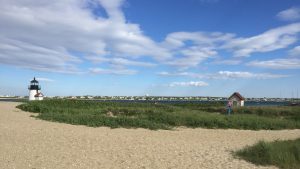Search results for: Canadian%20Online%20Pharmacy%20%EF%BF%BD%EF%BF%BD%EF%BF%BD%20www.HealthMeds.online%20%EF%BF%BD%EF%BF%BD%EF%BF%BD%20Cialis%2020%20Mg%20Prix%20Canada%20-%20Cialis%20Generic%20Canada
Water Quality
Water Quality Good water quality is necessary for swimming, boating, fishing, shellfishing, aquaculture, and most of the other activities that bring people to the coast, as well as for healthy coastal habitats. Major water quality concerns are often related to climate-oriented changes in biophysical processes and land-based human activities including septic discharge and runoff from…
Read MoreTeacher Workshop: December, 3 2021-Invasive Species
Marine Invaders: Green crabs and other local invasive species Presenters: Dr. Carolyn Tepolt, WHOI Biology Department – Invasive Species on Our Shores, Presentation Slides Dan Martino, co-owner, Cottage City Oysters – Invasive Species in Aquaculture, Presentation Slides Date: December 2021 Lesson Plans and Classroom Activities NOAA Live! 4 Kids recorded webinars: These…
Read MoreSustainable Fisheries and Aquaculture
Sustainable Fisheries and Aquaculture 2024-2025 Projects » Caroline Ummenhofer, Svenja Ryan, and Glen Gawarkiewicz of Woods Hole Oceanographic Institution: Changing Currents: Collecting data with fishermen to build more sustainable fisheries 2022-2023 Projects » Andy Danylchuk and Lucas Griffin, University of Massachusetts Amherst: Stripers on the Line: Quantifying short-term post-release activity, behavior and mortality of striped…
Read MoreHealthy Coastal Ecosystems
Healthy Coastal Ecosystems 2024-2025 Projects Jill Carr of the University of Massachusetts Boston, Forest Schenck of the Massachusetts Division of Marine Fisheries, and Alison Frye of Salem Sound Coastwatch: Restoring Eelgrass: Identifying best practices for a seed-based approach Ken Foreman and Ketil Koop-Jackobson of Marine Biological Laboratory, and Matt Long of the Woods Hole Oceanographic…
Read MoreHuman Dimension of Rebounding Population of Seals and White Sharks on Cape Cod, Massachusetts
Human Dimension of Rebounding Populations of Seals and White Sharks on Cape Cod, Massachusetts Principal Investigator Jennifer Jackman, Salem State University Co-Principal Investigators Owen Nichols, Center for Coastal Studies Lisa Sette, Center for Coastal Studies Stephanie Wood, Univ. of Massachusetts-Boston Melissa Sanderson, Cape Cod Commercial Fisherman’s Alliance Stephanie Sykes, Cape Cod Commercial Fisherman’s Alliance Cynthia…
Read MoreCarbon’s Journey and Our Warming Planet
Frank Niepold and Tom Di Liberto, NOAA’s Climate Program Office in Silver Spring, MD The carbon cycle is a process where carbon dioxide travels from the atmosphere into living organisms and the Earth, then back into the atmosphere. Learn how changes in carbon dioxide levels, such as burning fossil fuels (oil, gas, etc.), affect the…
Read MoreLesson Plans and Classroom Visits
Lesson Plans and Classroom Visits WHOI Sea Grant has developed a variety of classroom activities and lesson plans. The majority are within the COAST Program and all the classroom visits are based on COAST lessons. Visit the homepage for each lesson group to find out more. Coasts, Oceans, and Stewardship Program (COAST) WHOI Sea Grant…
Read MoreCOVID-19 Response Funding for Municipal Shellfish Programs and Industry Support
NOW CLOSED TO PROPOSALS – MIT Sea Grant & Woods Hole Sea Grant in partnership with Cape Cod Cooperative Extension | FY 2021-22 PURPOSE & SCOPE These guidelines contain the information and forms required to apply for the COVID-19 Response Funding for Municipal Shellfish Programs and Industry Support Program, focused on supporting municipal propagation to…
Read MoreNOAA Live! Lesson Units
NOAA Live! Lesson Units (Teacher-in-Residence Program) This program is a collaboration between the Cape Cod Regional STEM Network (CCRSN) and Woods Hole Sea Grant (WHSG). The lessons utilize NOAA Live! Webinars which is a collaboration between the NOAA Regional Collaboration Network and Woods Hole Sea Grant. Third grade North Falmouth Elementary School teacher, Michael Irving,…
Read MoreCoastal Conference Series Spotlights Nantucket
More than 100 people attended the second biennial Nantucket Coastal Conference at the Atheneum on June 26, 2019, to hear about the coastal issues that impact Nantucket and the approaches government, industry and non-profit organizations take in addressing them. Fifth in a series of conferences that started in 2013 and alternate between Martha’s Vineyard and Nantucket,…
Read More
